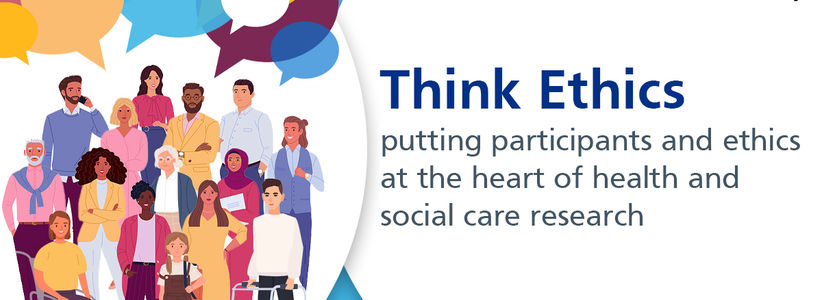Researchers encouraged to ‘Think Ethics’ from the beginning of their research

30th September 2021
The Health Research Authority’s new 'Think Ethics' campaign is putting people who participate in research at the heart of ethics review by encouraging researchers and the committees that review research to focus on what really matters to those who take part in studies
The campaign aims to make ethics review more innovative, efficient and trusted – building on many of the changes made to respond to the COVID-19 pandemic and lessons from running Research Ethics Committees with fellow regulators in Scotland, Wales and Northern Ireland.
Juliet Tizzard, Director of Policy and Partnerships at the HRA, said the work aims to make changes in a range of areas, to put people who participate in research at the heart of ethics review. It will focus on:
- clear and concise study information designed with and for participants
- fast, proportionate review focused on key ethical issues in a consistent way
- a rewarding experience for diverse, skilled and committed members
- a streamlined and user-friendly service, attracting world-leading health research in the UK
Some innovations used during the pandemic have already been introduced into the ethics review service: fast-track ethics review option for some clinical trials and virtual committee meetings. Further improvements are still to be shaped by participants, researchers, committee members and others. Once introduced, these changes will help to make the UK more attractive to researchers, increase participation in research and help attract a wider range of people to be on a Research Ethics Committee.
The Health Research Authority, along with its equivalents in the devolved administrations, oversees 84 Research Ethics Committees (REC) across the UK which provide an independent review of health and social care research studies involving people, their tissue and their data. RECs, which are made up of a mixture of expert members and lay members, provide a vital but often unseen service to health and social care research.
Ms Tizzard said: "Researchers often describe going through research ethics review as ‘getting ethics’. That’s understandable, especially for studies where lots of steps are needed to set up a new research study. However, we want researchers to think of ethics as central to well-designed research with valuable outcomes. To get there, we need to change what we do. We need to be clearer about what is expected of them and what the ethics committee is looking for. And we need to make sure that committees have the same approach to decision-making, even though they might make different decisions. Think Ethics is about really making sure that ethics review is working well for researchers, patients, research participants and ultimately society."
More information
- Read more about Think Ethics
- Find out more about the HRA
- Read about the research ethics structure in Scotland

